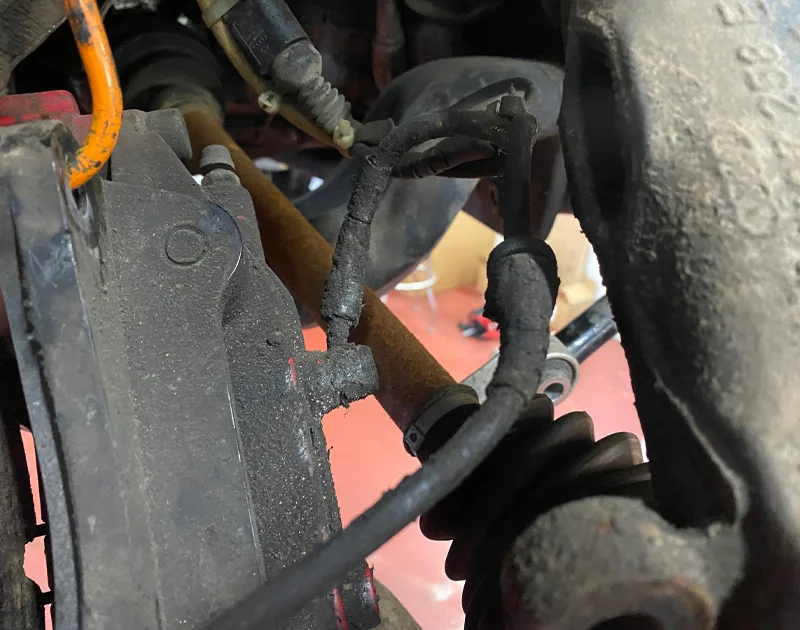How to Tell When your Brake Hoses Need to Be Replaced
Brakes are a complicated system relying on many parts working together. Calipers, pads, and rotors are the most visible part of the system and require frequent service or replacement due to the heat and friction they endure when the caliper clamps the pads down on the rotor to stop the car.
Brake hoses do not require the same service frequency as pads and rotors, but they will likely need to be replaced during the lifetime of your vehicle. They play an essential role in the function of the braking system. Damaged, cracked, or collapsed brake hoses are a major safety hazard.
Brake Lines vs Brake Hoses
While they connect directly, the brake line generally refers to the hard, metal piping that runs from the master cylinder through the vehicle. Brake hoses are flexible rubber tubes that connect from the end of the solid line to the brake caliper.
Brake hoses are made of a flexible material to allow the wheels to turn without them breaking. Unfortunately, they are more susceptible to damage.
What Do Brake Hoses Do?
There is a lot more to the braking system that goes on out of sight. For the caliper to be activated when you press the pedal, hydraulic brake fluid amplifies the force of your foot pressing the pedal. The fluid passes from the master cylinder, through the brake lines and hoses, and into the caliper.

Signs of Brake Hose Problems
Issues with brake hoses will normally involve a brake fluid leak. Depending on the severity, the symptoms can vary.
The Brake Light Comes On
Low brake fluid can cause the brake light to come on. If the light comes on, pop the hood and check the fluid level. The reservoir can be found on the driver’s side, just in front of the firewall.
Brake Fluid on the Ground
If you have a severely damaged or broken brake hose, you may notice drops of brake or a small puddle of fluid on the ground where you park.
The Pedal Feels Different
If a brake hose is leaking and the fluid level is low, the amount of pressure transferred from the pedal to the caliper will drop. This will cause the pedal to feel spongy or soft.
The Brakes Are Not as Effective
Again, with low fluid levels from a broken brake hose, power amplified by the brake fluid will be less, and the brakes will not have a strong “bite” like they used to. In the case of severe leaks or a completely broken hose, the brakes can fail.
What Causes Brake Hoses to Fail?
There are a few ways brake hoses can fail. The material the lines are made from can also dictate how they fail. Brake hoses are most commonly made of rubber but also come as a braided stainless steel line.
Generally, they will wear out after years of use and thousands of miles of driving. They can become caked with dirt, grime, and grease that will break down the rubber faster. A hard impact from road debris can nick or even sever the hose.
The brake fluid inside the hose retains water and can become contaminated with debris. Over time, contaminated brake fluid can lead to brake hose failure. This is why regular brake fluid flushes are important.

Brake Hose Replacement at Becker Service Center
Any issue with your braking system needs to be addressed as soon as possible, but a broken brake hose is especially urgent. If you have any brake issues, Becker Service Center can help. Our conveniently located Naperville auto repair shop is staffed with ASE-Certified technicians. Give us a call or schedule an appointment online today!